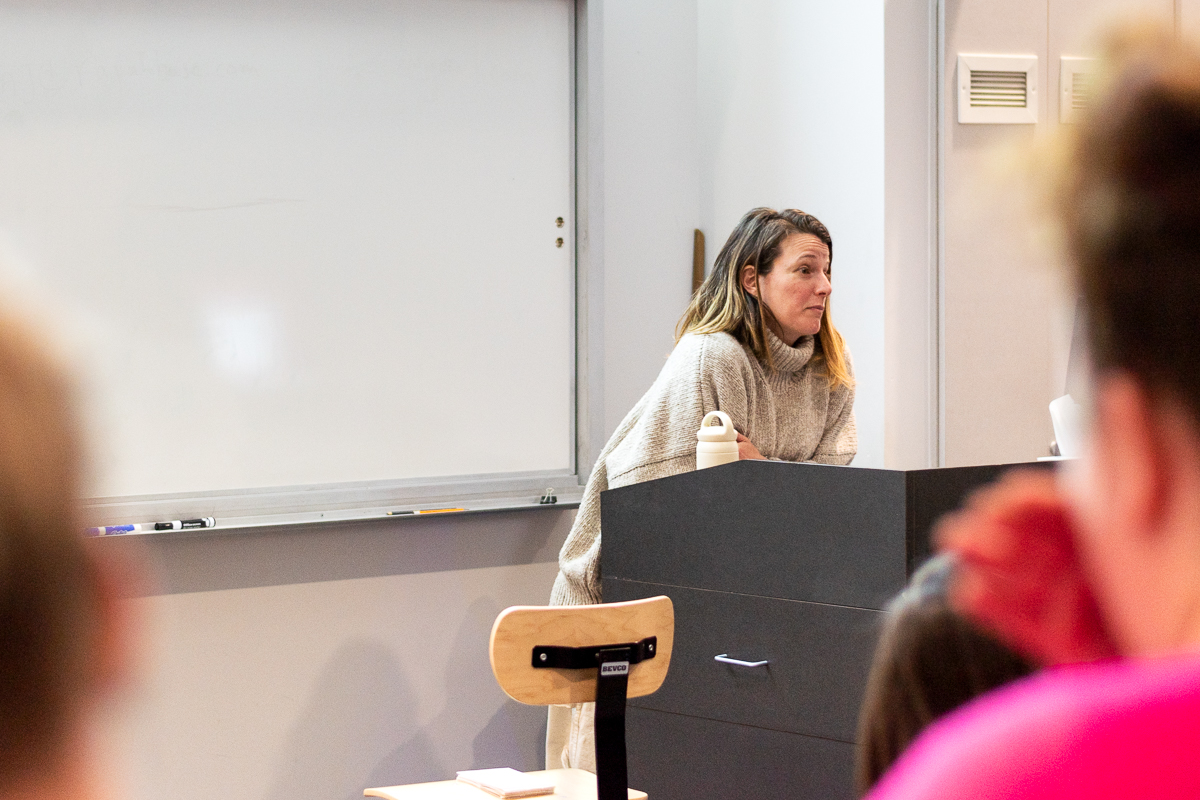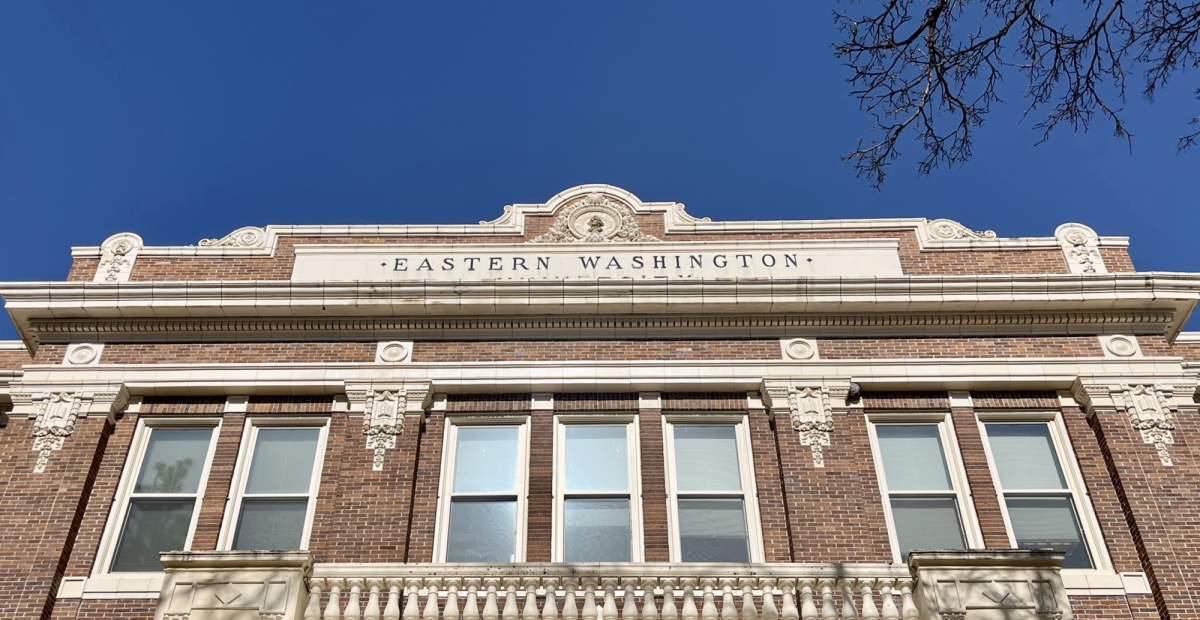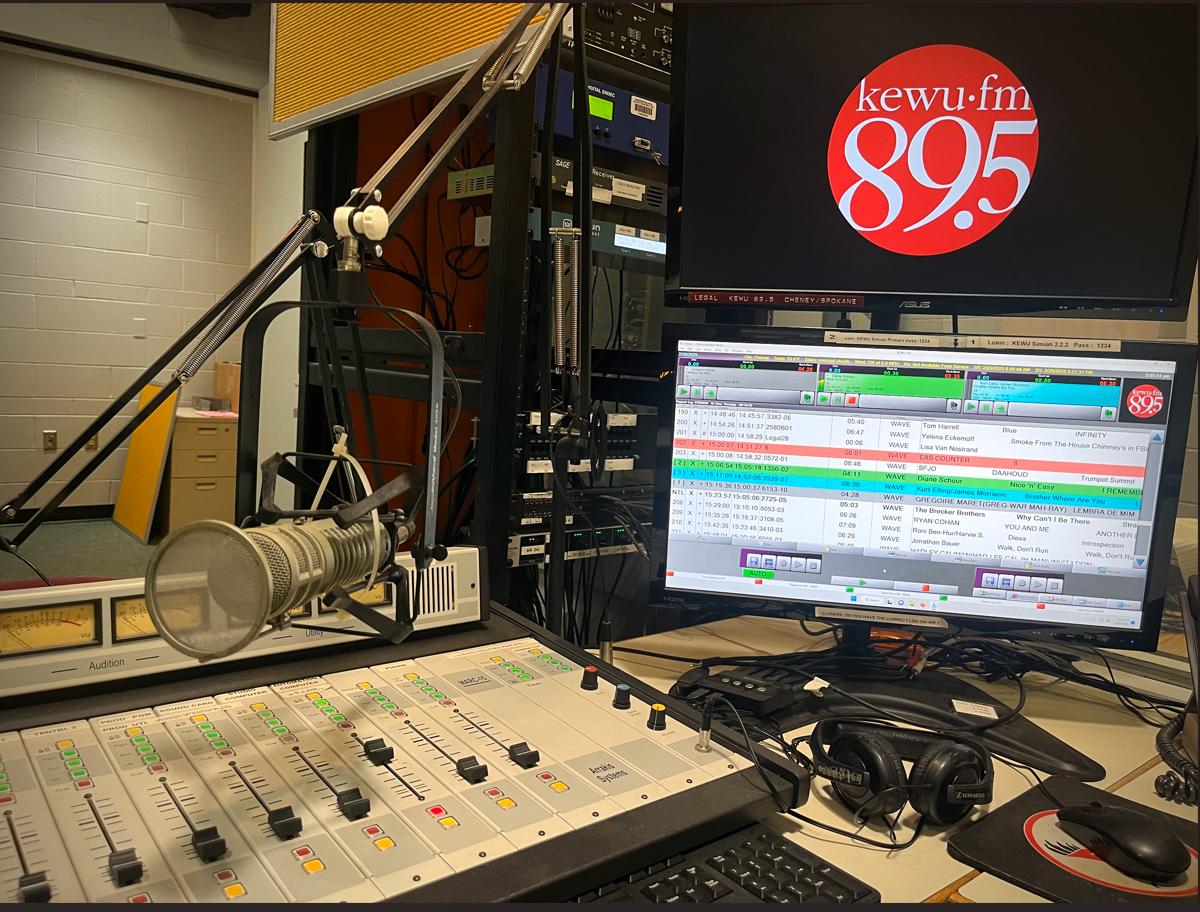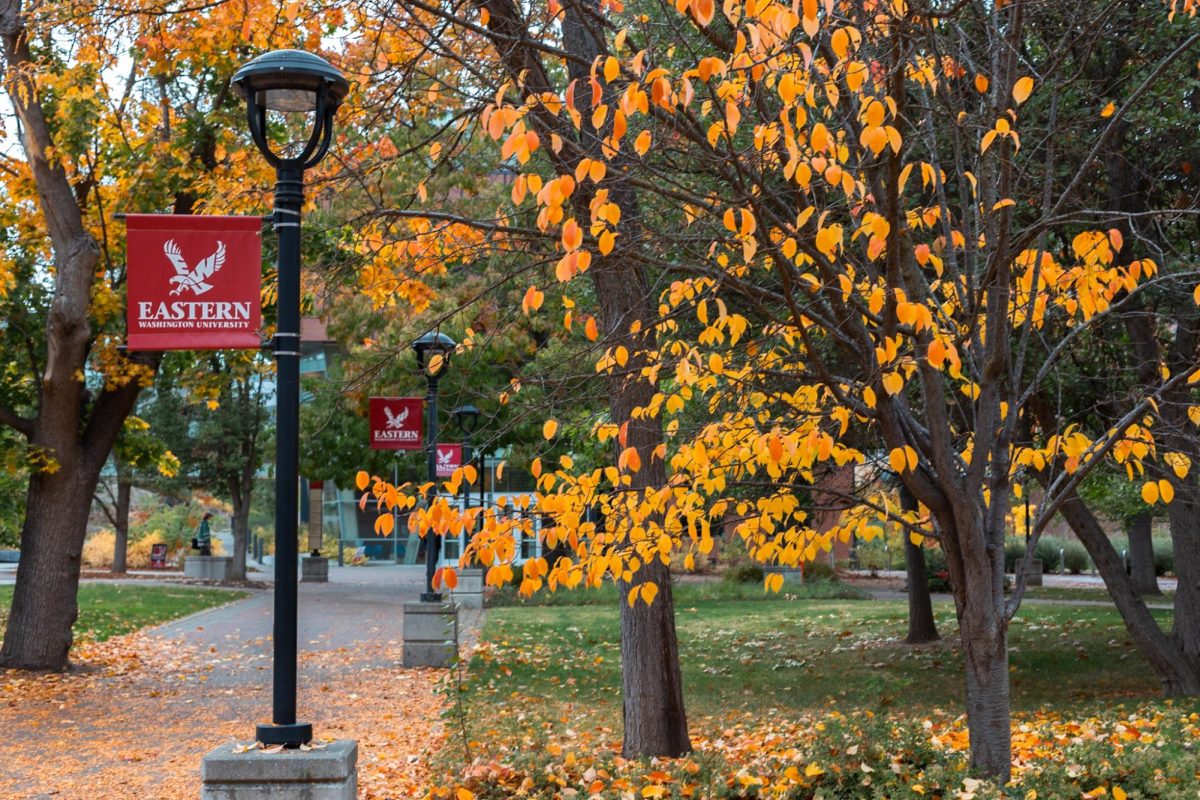On March 12, Eastern Washington University hosted Cara Levine, a Los Angeles-based multimedia artist and activist, as a part of the Visiting Artist Lecture Series.
The Visiting Artist Lecture Series (VALS) is organized collaboratively by Eastern Washington University, Spokane Falls Community College, and the Northwest Museum of Arts and Culture, and extends invitations to artists across diverse disciplines to engage with students on college campuses and share their craft.
Cara Levine began the lecture by telling the attendees that some of the subject matter in her presentation may be upsetting.
“My work is meant to stir discourse,” Levine said. “And I find that I return to the same themes again and again.”
Many of Levine’s works of art are centered around grief, which may be a tough subject for people. To prepare for the presentation, she led the audience through a grounding exercise where they were guided to take deep breaths into their “pain.” She explained that no matter whether the pain one was experiencing was mental or physical, “it opens things up” when they do this.
After the exercise, Cara began talking about her piece that was featured in the Contemporary Jewish Museum titled “Grief to Fill a Room With.” The piece is composed of an inflatable structure inside of a room with furniture and other items.
“How do we grapple with the volume of our grief?” Levine asked, before showing some of the items being pushed by the inflatable. “In the cabinet, there is a pair of pants belonging to my grandmother, there is a stool in there from my childhood, my mothers painting was there.”
Levine then explained that much of her artwork stems from an impulse to understand her environment. One way she does this is by collecting photos and videos.
“Through this collection, I find the grace and beauty in life,” she said.
Another piece Levine showed was titled “Cried Listening To The News Again.” This piece is a time-lapsed video and stills that featured silver balloons tied to the gutters of her own apartment complex at the height of the pandemic in 2020.
“This time felt so isolating. This space at my complex was where they used to throw birthday parties.,” Levine said. “How do we embrace each other in pain?”
Another piece, titled “To Survive I Need You To Survive” was based on a gospel song Levine had heard at an interfaith service for victims of gun violence. This piece, made of birch plywood, oak, rubber, and leather, formed a ring with the words “I Need You To Survive” carved out continuously.
“The song brought forth the idea of interdependence,” Levine said. “This piece is not complete without the shadow, the dark side of it.”
Levine is also the founder of a socially engaged artwork titled “This Is Not A Gun.”
“I love to copy things from my life,” Levine said. “By making things by hand I learn the history.”
In 2016, Levine encountered a list of 23 items that were mistaken as firearms by police and resulted in civilian shootings.
“I recreated the objects, thinking maybe somehow along the way I’d realize how they were mistaken for guns,” Levine said. “At no point did any of them appear to me as guns.”
“This Is Not A Gun” is not a solo project, and includes workshops as well as a book that have been collaborated on by many social justice activists.
“We’ve had over 25 workshops for “This Is Not A Gun,” and over 300 sculptures have been made,” Levine said. “ In 2020 this project evolved past sculptures and became a book. It’s now in its third edition.”
In her artwork titled “Carve; The Mystic Is Nourished From This Sphere,” Levine offered attendees of the Contemporary Jewish Museum the chance to finish the sentence “Today, I’m grieving…” by allowing them to use a pencil to fill out a note with those three words on the top, and a drop box nearby. Levine then, every 7 days for 3 weeks, used a projector to carve over 100 of these notes into a nearby wooden “hole.”
“We collected 1,566 of these notes, and I have kept them all,” Levine said. “I carved them every seven days, like shiva, and we concluded the final week of carving with events.”
At the end of the event, Levine passed out the same notes to the attendees and asked them to write what they were grieving, and pass them back if they were comfortable with it. After they were passed back, Levine read each of them out loud. Some included: “Today I’m grieving the time spent wasted.”, “Today I’m grieving the demonization of my trans brothers and sisters.” ,“Today I’m grieving a future with someone I loved.” ,“Today I’m grieving my father’s passing.” and “Today I’m grieving the loss of my childhood.”
Most of Levine’s artwork can be found at her website, and more information about the “This Is Not A Gun” project can be found here.
















